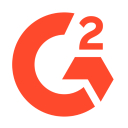
My SaaS Makes $8K/Month and Helps Apps Spy on Their Competitors
Hello! Who are you and what business did you start?
My name is Roman Medvedev, I’m a founder of AppstoreSpy mobile app intelligence. We help mobile app developers and marketers grow by spying on competitors. It collects data from various sources and uses mathematics and machine learning to analyze and extract key insights about app competitors.
Businesses that use AppstoreSpy can monitor their competition, conduct research more effortlessly, and select the most effective keywords for their apps. It's a valuable tool for achieving success in the world of mobile apps.
Our typical clients, including app developers, product managers, marketers, business owners, digital agencies, and publishers, come to us to explore market size, vital market metrics and dynamics, trends, and key players.
These are our main tools:
Market Explorer: Quickly find data you need about apps, developers, and niches.
Watchlists: Gather competitors' data, monitor their updates, and discover new ones daily.
Chrome Extension: Explore mobile app metrics without opening app pages.
Niche Finder: An easy way to find niches with low competition, high traffic, and growth potential.
App Timeline: Take a look at the changes to the apps and understand their impact on installs and revenue.
Market Overview: Explore market size, vital market metrics and dynamics, trends, and key players in just a few clicks.
We've grown about 113% in the last 4 months thanks to the launch of version 2 and new tools.

What's your backstory and how did you come up with the idea?
I've spent the last 20 years building various startups, mostly in AdTech and MarTech. Since 2015, I have been involved in affiliate marketing, selling millions of downloads to other companies, and asked myself: How can I develop the same app that will get millions of installs and make money for me? I had to collect information from competing apps by hand, which took up much time. Recognizing this inefficiency, I found a way to speed up the process of analyzing multiple apps and collecting data using an extension for Chrome.
At that time, there were Appanie and Sensor Tower in the market, offering app and market analytics services. However, these tools were expensive and challenging for the average indie developer to learn. It posed a significant problem for me as I aimed to make data-driven decisions, but the existing options were both time-consuming and costly. This led me to the decision to develop a user-friendly and affordable tool.
Initially, I created an extension for Google Chrome that embedded key app metrics directly into the Google Play search results, allowing me to perform niche analysis without opening any extra pages. This simplified the process for me and my friends, saving considerable time and effort.

The extension gained popularity primarily through word of mouth, as developers, marketers, and ASO specialists shared it within their communities. It quickly became a topic of discussion in various online spaces, resulting in a rapid increase in user awareness.
Building on this initial success, I transformed the extension into a web service featuring advanced analytics. This expanded functionality allows users to efficiently explore various aspects of apps, including downloads, revenue, countries, releases, ratings, and similar apps. This comprehensive service proves invaluable for competitor research, curating app collections, and tracking changes over time.
Now, AppstoreSpy has over 7,000 people using it every month. These users come from different backgrounds, such as small startups, individuals who create their own apps, marketing teams, and even large companies. Many of these users are from places like Morocco, India, and Pakistan. So, AppstoreSpy is used by people all over the world to understand how apps work and what's happening in the app market.
By the way, in September we achieved an incredible milestone by being awarded the #1 product of the day on Product Hunt. It’s a great achievement and victory for us that motivates us to work harder.
Find the pain and solve it…I give my solution and ask for it to be evaluated. If it resonates with people, then it's the right one.
Take us through the process of building the first version of your product.
Being a very experienced old-school backend developer, I alone created the extension and the first version on my own. It looks minimalistic MVP, but it continues to operate and is used by a large part of our users. I hired my first employee, a front-end developer to build a new version, in 2021.

The introduction of the web service provided users with the ability to analyze the market using various parameters beyond app metrics. I was able to provide them with a tool for niche discovery and market and competitor analysis.
The entire backend and the first version of Appstorespy are written entirely in python. The frontend of the second version is ReactJS and NextJS.
After the successful launch of the first version, I immediately began refining the product. By hiring a designer, we created a second version with a more user-friendly interface, anticipating future trends and changes over the next two years. This process included design, testing, and implementation, requiring the expertise of two front-end developers. Currently, the second version operates smoothly.

Describe the process of launching the business.
Oh, it's very simple: find the pain and solve it. It works best for yourself. I still don't understand how to identify the pain by asking questions on the street to random people. Therefore, I don't go around asking questions. Instead, I present my solution and ask for it to be evaluated. If it resonates with people, then it's the right one.
If your MVP, built from the ground up, suddenly finds users and starts growing, you need to develop and expand it.
For instance, a week after I launched the Chrome Extension tool, I acquired the first customer who paid $9. After two months, there were 50 customers, and in six months, over 500 users. That's when I realized there was a demand for app analytics, and I needed to expand the service. So, we created the full-fledged AppstoreSpy tool. Upon its launch, 30% of the extension users switched to our new product.
About a month after launching the initial version of AppstoreSpy, we secured our first customer for that too, and the product cost $49 per month. From there, we continued to grow — bringing in partners, engaging with users, fixing bugs, and improving the product.
After two years, we recognized that AppstoreSpy needed an update because it was becoming outdated. We added new features, improved usability, and tried to encourage users to switch to the new version. However, many users stuck with the old version. So, we treated the new one as a completely different product and sought out new users.
That's why we launched Product Hunt to attract new users. We secured the #1 spot, bringing in 1,400 new people to our site. 10 of them bought a subscription. Social media took notice too — six bloggers made posts about us. We received three collaboration offers, and three interviews, and users provided ideas for new features. Product Hunt not only brought in new users but also garnered attention from media and influencers, helping us promote the product even more after the launch.
Since launch, what has worked to attract and retain customers?
To initially attract customers, we utilized the extension as our primary traffic source, leading users to the web service. With the launch of the second version, we diversified our marketing approach by incorporating email marketing, which yielded positive results from cold outreach and regular campaigns.
We gather emails through website registrations. During the signup process, users grant permission to receive emails. Currently, we implement onboarding flows post-registration and send out a regular newsletter. We're achieving a solid conversion rate, with approximately 20% opening the newsletter and a click-through rate of about 6%. Our newsletters feature cases, guides, and insights from AppstoreSpy data, introduce new tools, and encourage feedback.
In terms of partnerships, we maintain successful collaborations with industry partners, internet magazines, developer communities, and more, effectively driving traffic from various regions. We're actively looking for new partners to join us. Usually, we give them discounts on our tool and let all their subscribers use it for free for a while.
Additionally, we promote our partners on our website and social media channels. Two months ago, we teamed up with an online school for app developers and gave all the students a free premium subscription to AppstoreSpy as a cool gift for finishing their online course. It was a great way to let more people know about our tool.
To retain customers, we've adopted a tailored approach, responding promptly to their inquiries and customizing features to meet their specific needs.
Regarding customer retention, our flexible approach and quick problem-solving have helped numerous development studios and game companies overcome challenges. Even past users who no longer actively utilize our service often recommend it, serving as a potent source of new customers. We've achieved minimal negative feedback, validating the effectiveness of our approach.
How are you doing today and what does the future look like?
We offer three different plans: Premium for app beginners at $19 per month, PRO for growing businesses at $99 per month, and Business for large companies aiming to dominate the app market at $199 per month.
We don't spend money on paid ads. Instead, we use strategies like partnerships, promo codes, working with influencers, and writing articles to grow our user base. Each month, we have around 20,000 users visiting our platform, and we have 13,000 users on our email subscriber list.
Currently, we are operating at a breakeven point, we're not generating any revenue at the moment. We are using our own invested funds to develop and grow the product.
We're in the process of integrating artificial intelligence (AI) into our tool. Currently, our backend developer is handling the work, but we'll be seeking an AI developer for this role. While we're still in the development phase, we wanted to give you a glimpse of what's coming up next.
- Ask AppstoreSpy's AI to identify competitors for any given app, streamlining your competitor analysis process.
- Discover market leaders: Inquire about the current market leaders in a specific niche or category and receive real-time insights on the top-performing apps.
- Understand market share dynamics: Seek information on market share distributions among the top players, helping you gauge the competitive landscape.
This AI integration will provide quick answers, ensure data accuracy, allow dynamic exploration, and deliver actionable insights.
Through starting the business, have you learned anything particularly helpful or advantageous?
In the process of growing my business, I've learned valuable lessons. One of them emphasizes the importance of planning and assembling a qualified team. I've realized that soft skills like communication and a willingness to learn often play a more crucial role than hard skills. Building a team capable of learning and collaborating effectively has become a key factor in our success.
A significant decision was positioning our business in the small business market. We found our niche among small development studios just starting their journey. This greatly impacted our success, and we're actively working on creating products tailored to the needs of this target audience.
Additionally, we continually learn from the products and tools we create. For example, our "App Timeline" tool was developed to help developers track app changes and their impact on installs and revenue. This experience has taught us to be more attentive to market dynamics and not miss essential changes.
It's essential to adapt continuously, extract lessons from our own experiences, and prepare for changes in the business environment. Maintaining a cohesive and effective team and striving for innovation and improvement help us successfully grow our business.
What platform/tools do you use for your business?
Jira is our go-to for project planning and task tracking, ensuring that we maintain an organized workflow to meet our goals effectively.
When it comes to analytics, we find Google Analytics 4 and Amplitude to be invaluable. They provide us with comprehensive insights into user behavior, allowing us to make data-driven decisions and refine our strategies for better outcomes.
To communicate important announcements with our users, we turn to Frill, which helps us create and deliver messages effectively. Furthermore, for our email marketing efforts, SendPulse is our choice of platform. It offers a range of features and flexibility that align with our needs and allows us to engage with our audience through well-crafted email campaigns. It's worth noting that many of these tools offer free plans for startups, enabling us to harness their power as we continue to grow and evolve.
What have been the most influential books, podcasts, or other resources?
Podcasts:
- Entrepreneur on Fire: Hosted by John Lee Dumas, this podcast features insightful interviews with successful entrepreneurs.
- The Tim Ferriss Show: Tim Ferriss' podcast is a source of unconventional wisdom through interviews with accomplished individuals from various fields.
- How I Built This: Guy Raz's podcast provides motivation and business insights from interviews with thriving entrepreneurs.
Books:
- The Lean Startup by Eric Ries: This book revolutionized our business approach with its focus on rapid experimentation and customer feedback.
- The 7 Habits of Highly Effective People by Stephen Covey: Stephen Covey's book guides us with principles like proactivity and prioritization for personal and professional success.
- Good to Great by Jim Collins: Jim Collins' book offers valuable insights into achieving greatness in business.
Resources:
- SCORE: This nonprofit provides mentoring, resources, and workshops, aiding us on our entrepreneurial journey.
- Small Business Administration (SBA): SBA supports us with funding programs, training, and counseling services.
- Startup Savant: This resource hub offers business guides, funding programs, and local assistance, enhancing our entrepreneurial endeavors.
Advice for other entrepreneurs who want to get started or are just starting out?
Empower your decisions with data: Analyzing data has not only guided me toward profitable choices but has also laid the foundation for crafting a data-centric tool.
Engage with people to uncover their challenges and innovate solutions.
A well-crafted product resonates, sparking organic sharing within communities. A quality tool becomes its advocate, effortlessly garnering free promotion.
Are you looking to hire for certain positions right now?
We are currently looking to hire developers, specifically those with expertise in AI, as we embark on the development of an AI model. Even if you're just curious and want to chat about your vision for implementation, we're open to that too.
Where can we go to learn more?

Download the report and join our email newsletter packed with business ideas and money-making opportunities, backed by real-life case studies.

Download the report and join our email newsletter packed with business ideas and money-making opportunities, backed by real-life case studies.

Download the report and join our email newsletter packed with business ideas and money-making opportunities, backed by real-life case studies.

Download the report and join our email newsletter packed with business ideas and money-making opportunities, backed by real-life case studies.

Download the report and join our email newsletter packed with business ideas and money-making opportunities, backed by real-life case studies.

Download the report and join our email newsletter packed with business ideas and money-making opportunities, backed by real-life case studies.

Download the report and join our email newsletter packed with business ideas and money-making opportunities, backed by real-life case studies.

Download the report and join our email newsletter packed with business ideas and money-making opportunities, backed by real-life case studies.
























